Oppenheimer’s controversial legacy
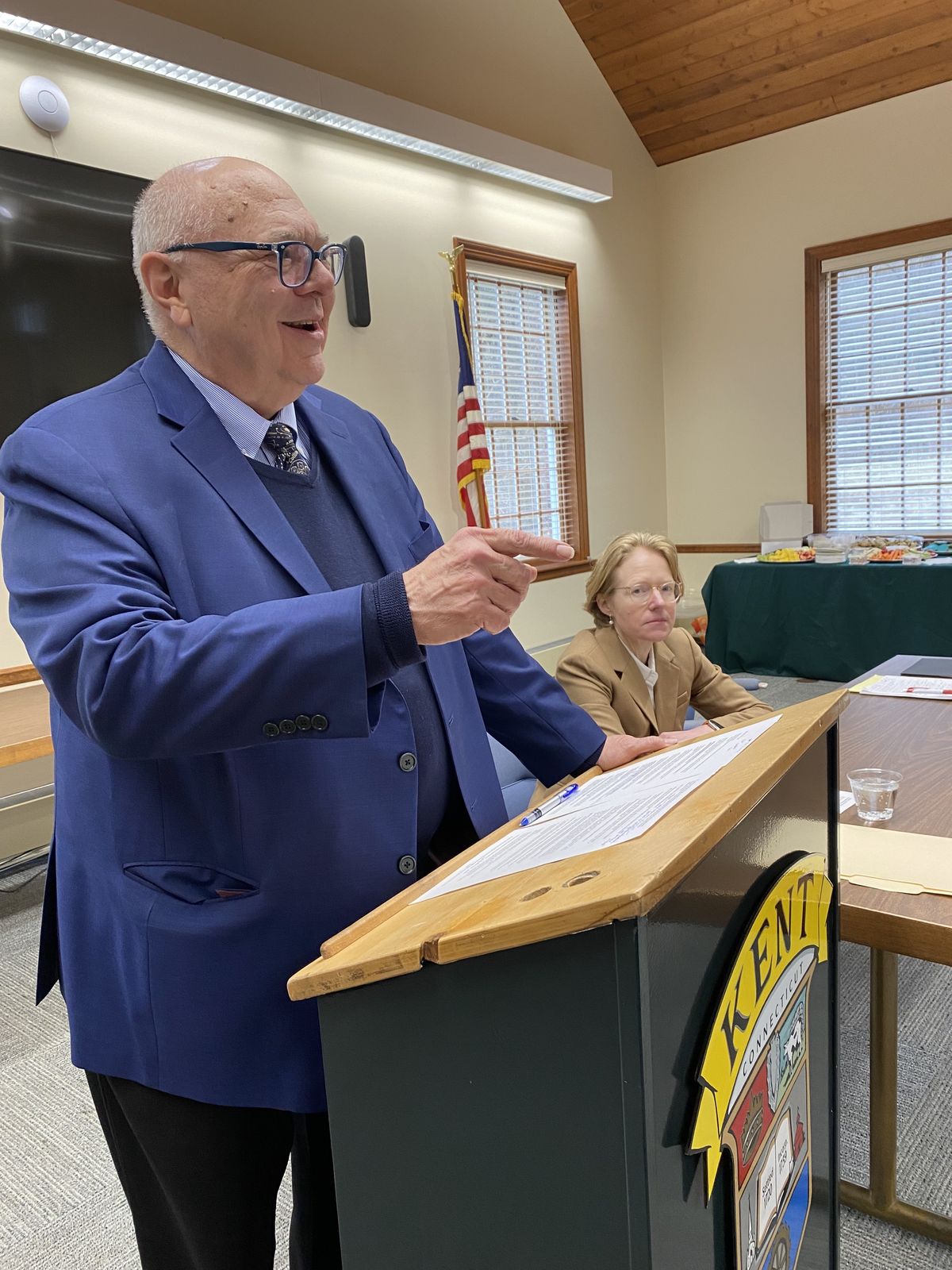
CIA veteran John Lauder drew on his experience in intelligence and arms control monitoring for a program at the Kent Town Hall Saturday, March 9. Seated is Kent native Sarah Chase, who served as moderator for the discussion.
Leila Hawken
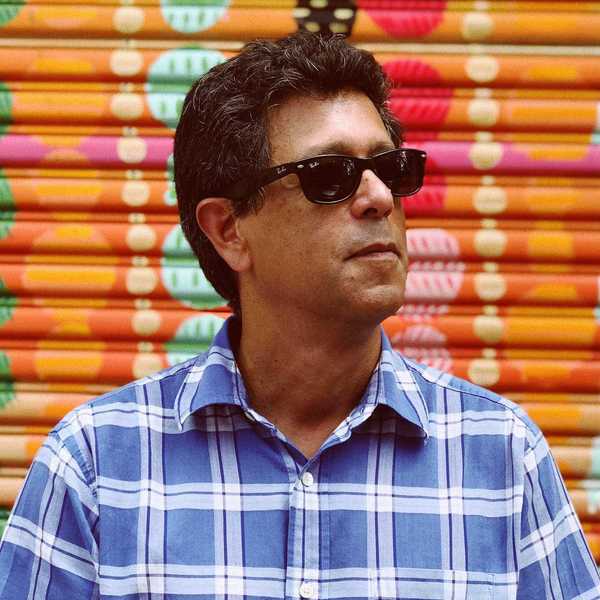
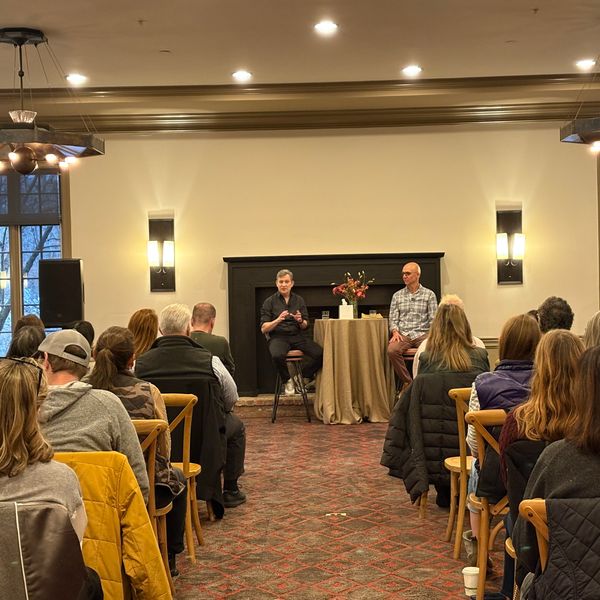
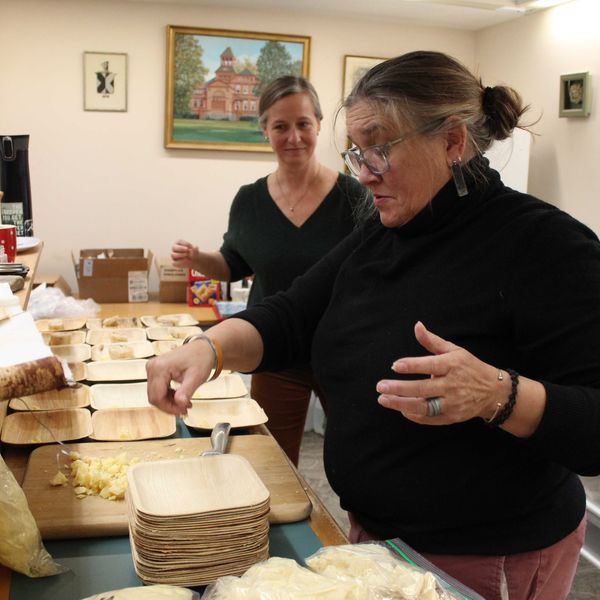
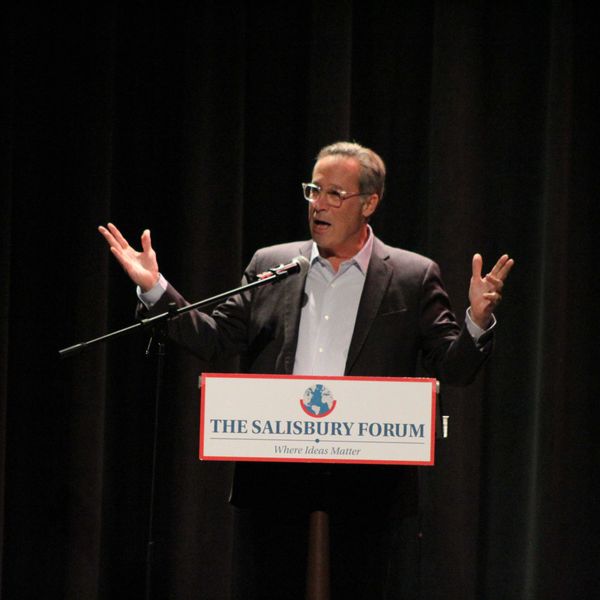
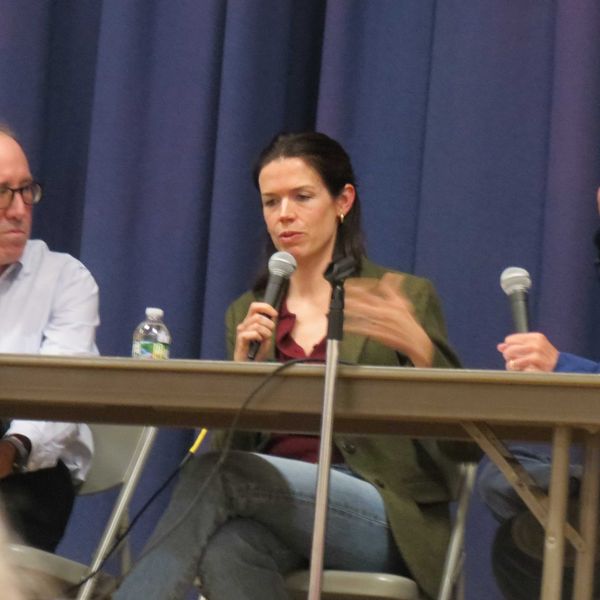


 Kent's Ainsley Moffitt takes a shot against the Millbrook goalie.Photo by Lans Christensen
Kent's Ainsley Moffitt takes a shot against the Millbrook goalie.Photo by Lans Christensen Lily Kennedy on attack for Millbrook.Photo by Lans Christensen.
Lily Kennedy on attack for Millbrook.Photo by Lans Christensen. Ainsley Moffitt celebrates after scoring a goal for Kent.Photo by Lans Christensen
Ainsley Moffitt celebrates after scoring a goal for Kent.Photo by Lans Christensen



 Plagens and Fendrich at home in front of some of Fendrich’s paintings. Natalia Zukerman
Plagens and Fendrich at home in front of some of Fendrich’s paintings. Natalia Zukerman






